The Impact of AI-Enabled Remote Patient Monitoring Systems

The healthcare landscape is undergoing a significant transformation, with technology playing a pivotal role in improving patient care and outcomes. One of the most promising advancements is the emergence of AI-enabled remote patient monitoring systems. These innovative technologies leverage artificial intelligence to revolutionize how healthcare providers monitor and manage patients’ health remotely, offering numerous benefits for both patients and providers alike.
- Enhanced Patient Care
AI-enabled remote patient monitoring systems empower healthcare providers to deliver more personalized and proactive care to patients, regardless of location. By continuously monitoring vital signs, symptoms, and other relevant health data in real-time, these systems can detect subtle changes in a patient’s condition early on, allowing for timely intervention and treatment adjustments. This proactive approach helps prevent complications, reduce hospital readmissions, and improve overall patient outcomes. - Improved Patient Engagement
AI-enabled remote patient monitoring systems, actively involve patients in managing their health, fostering greater engagement and adherence to treatment plans. Through user-friendly interfaces and mobile applications, patients can easily input their health data, track their progress, and receive personalized feedback and recommendations from healthcare providers. This active involvement encourages patients to take ownership of their health and make informed decisions about their well-being. - Efficient Resource Utilization
Traditional healthcare delivery often involves frequent in-person visits, which can be time-consuming and resource-intensive for both patients and providers. AI-enabled remote patient monitoring systems help optimize resource utilization by reducing the need for unnecessary clinic visits and hospital admissions. By remotely monitoring patients’ health status and intervening when necessary, healthcare providers can allocate their time and resources more efficiently, focusing on patients who require immediate attention while still providing ongoing support to those under remote monitoring. - Early Disease Detection and Prevention
Early detection is crucial for effectively managing chronic conditions and preventing disease progression. AI-enabled remote patient monitoring systems utilize advanced algorithms to analyze volumes of data identifying patterns indicative of potential health issues. By detecting subtle changes in vital signs, medication adherence, and other relevant metrics, these systems can alert healthcare providers to potential problems before they escalate, enabling timely intervention and preventive measures to be implemented. - Tailored Treatment Plans
Every patient is unique, with individualized healthcare needs and preferences. AI-enabled remote patient monitoring systems enable healthcare providers to develop personalized treatment plans tailored to each patient’s specific condition, lifestyle, and goals. By analyzing patient data and leveraging predictive analytics, these systems can recommend personalized interventions, medication adjustments, and lifestyle modifications to optimize treatment outcomes and improve patient satisfaction. - Remote Monitoring Beyond Clinical Settings
AI-enabled remote patient monitoring systems extend healthcare beyond the traditional clinical settings, enabling patients to receive care at home. This is particularly beneficial for individuals with chronic conditions, elderly patients, and those living in remote or underserved areas. By providing continuous monitoring and support outside of the hospital or clinic setting, these systems enhance access to care and improve patient convenience, leading to better overall health outcomes. - Integration with Wearable Devices
The proliferation of wearable devices, such as smartwatches, fitness trackers, and medical-grade sensors, has further expanded the capabilities of AI-enabled remote patient monitoring systems. These devices seamlessly integrate with monitoring platforms, allowing for continuous tracking of vital signs, physical activity, sleep patterns, and other relevant health metrics. By collecting real-time data from wearable devices, healthcare providers gain valuable insights into patients’ daily activities and health status, enabling more informed decision-making and proactive care management. - Scalability and Cost-Effectiveness
AI-enabled remote patient monitoring systems offer scalability and cost-effectiveness, making them accessible to healthcare organizations of all sizes. Unlike traditional healthcare delivery models that rely heavily on in-person visits and manual data collection, remote monitoring systems can efficiently manage large patient populations with minimal human intervention. This scalability reduces the burden on healthcare providers and streamlines care delivery, ultimately lowering healthcare costs and improving overall efficiency.
Let’s explore real-life examples that demonstrate the tangible impact of AI-enabled remote patient monitoring systems on improving patient outcomes, enhancing healthcare delivery, and reducing healthcare costs.
- Philips Healthcare’s eCareManager
Philips Healthcare’s eCareManager is an AI-enabled remote patient monitoring platform widely adopted by healthcare organizations around the world. This platform allows healthcare providers to remotely monitor patients with chronic conditions such as congestive heart failure, chronic obstructive pulmonary disease (COPD), and diabetes. By collecting data from connected medical devices such as blood pressure monitors, weight scales, and pulse oximeters, eCareManager provides real-time insights into patients’ health status and alerts providers to any concerning changes. This proactive approach has effectively reduced hospital readmissions, improve medication adherence, and enhance patient satisfaction. - Biofourmis
Biofourmis is a digital health company that leverages AI and machine learning algorithms for remote patient monitoring solutions. Their flagship product, Biovitals®️, continuously monitors patients’ vital signs, activity levels, and physiological parameters using wearable sensors and smartphones. The collected data is analyzed in real-time to detect anomalies and predict health deterioration, enabling early intervention by healthcare providers. Biofourmis’ remote monitoring platform has been deployed in clinical trials and real-world settings to manage conditions such as heart failure, chronic pain, and oncology-related symptoms, demonstrating promising results in improving patient outcomes and reducing healthcare costs. - AvaSure
AvaSure’s AI-powered remote patient monitoring systems enhances patient safety and quality of care in hospitals and long-term care facilities. Their flagship product, AvaSys®️, uses video monitoring and AI algorithms to remotely monitor patients at risk of falls, self-harm, or other adverse events. The system analyzes video feeds in real-time to identify potential safety concerns and alerts healthcare staff to intervene as needed. AvaSure’s remote monitoring solution has evidenced a reduce in falls, prevent adverse events, and improve staff efficiency, leading to better patient outcomes and cost savings for healthcare facilities. - Caretaker Medical
Caretaker develops wearable monitors with AI algorithms to continuously monitor patients’ blood pressure, heart rate, and other vitals in real-time. Their device, the Caretaker®️ 4-in-1 Blood Pressure and Vital Signs Monitor, provides clinicians with accurate and actionable data for remote patient monitoring and telehealth consultations. By leveraging AI to analyze vital signs trends and detect abnormalities, Caretaker Medical’s remote monitoring solution enables early detection of deteriorating patient conditions and timely intervention to prevent adverse outcomes. The company’s technology has been utilized in hospital settings, ambulatory care, and home-based monitoring programs, demonstrating its versatility and effectiveness in improving patient care across various healthcare settings. - BioIntelliSense
BioIntelliSense develops wearable biosensor devices and AI analytics platforms for remote patient monitoring and early detection of health issues. The BioSticker™️, is a disposable biosensor patch that continuously monitors vital signs, physiological parameters, and activity levels in real-time. The collected data is transmitted to BioIntelliSense’s cloud-based analytics platform, where AI algorithms analyze the data for signs of health deterioration and alert healthcare providers to intervene as needed. BioIntelliSense’s remote monitoring solution has been used in clinical trials and remote patient monitoring programs to manage conditions such as COVID-19, chronic diseases, and post-surgical recovery, demonstrating its effectiveness in improving patient outcomes and reducing healthcare costs.
These real-life examples illustrate the diverse applications and benefits of AI-enabled remote patient monitoring systems in healthcare. By leveraging artificial intelligence to analyze patient data in real-time, these systems empower healthcare providers to deliver more personalized, proactive, and efficient care to patients, regardless of their location.
Conclusion
AI-enabled remote patient monitoring systems represent a transformative advancement in healthcare delivery, for patients, providers, and healthcare organizations alike. By harnessing the power of artificial intelligence, these systems empower healthcare providers to deliver more personalized, proactive, and efficient care to patients, regardless of their location. As technology evolves, the potential for AI-enabled remote patient monitoring to revolutionize healthcare delivery and improve patient outcomes is limitless.

